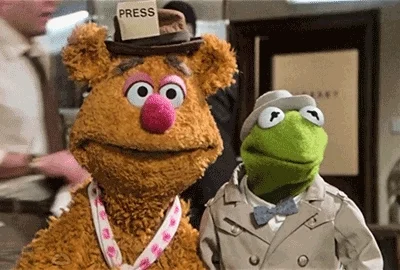So you love to write, you have an inquisitive mind, you're comfortable asking challenging questions, and you value honest reporting? Consider a career path in journalism!
As an undergraduate, I was the person described above, so studying journalism was a good fit for me.

You may wonder what a degree in journalism can offer. Discover the skills you can acquire from studying journalism and what types of journalism careers you can consider.
Did you know?
Why study journalism?

Journalists are individuals who want to know others' stories. They love asking questions and they're good listeners.

Journalists are courageous. They take risks and aren't afraid of being disliked.

Journalists value truth. They seek the truth and they report the truth.
Did you know?
What will you learn in journalism school?
Studying journalism will expose you to both soft and hard skills that can serve you well no matter which career path you follow:
Writing skills
You'll learn to write efficiently and concisely, answering the "WH" questions: who, what, where, when, why, and how. You'll grow your vocabulary and discover how to communicate your message clearly.
Interviewing skills
Learning how to ask questions, what questions are appropriate to ask, and how to listen to the answers to these questions is another essential skill you'll learn in journalism school.
Critical thinking skills
Critical thinking means the ability to question, analyze, and evaluate what you read, see, and hear in a logical, rational, and intelligent manner.
Listening skills
A journalist listens carefully so that they can correctly report information. Strong listening skills are an asset for every career path.
Fact checking skills
You will learn how to check the accuracy of information and how to spot reliable sources of information.
Editing skills
It is important to decide what you want to say or write, but it can be equally important to decide what you don't want to say or write. Journalism classes will teach you how to edit both written and video content.
Did you know?
What career paths can you follow?
As a journalist, you can find work as a reporter for a newspaper or magazine (print journalism). Or you may prefer a more visible role as a news anchor (broadcast journalism).
If you prefer to use a camera to tell stories, you might consider becoming a photojournalist (photo journalism), which involves traveling the world to take pictures of newsworthy events.
Quiz
Imagine…you love taking pictures of places and newsworthy events and posting them online. You also dream of traveling. What career path you could take?
Did you know?
Subscribe for more quick bites of learning delivered to your inbox.
Unsubscribe anytime. No spam. 🙂
What training options are available?

Research journalism schools. Do an online search for universities and colleges that offer journalism programs. What courses do they offer? Who are their faculty — are they working journalists?
Consider if the school offers an internship opportunity. You can also connect with current and former students to learn about their experiences. Do they recommend the program?
If a four-year program doesn't suit your needs, consider a journalism certificate program as an "extension" course (many universities have these). Certificates cost less money than universities/colleges and take less time.
Quiz
True or false: you must attend a four-year university to study journalism.
Take Action

To prepare for your journalism program:










